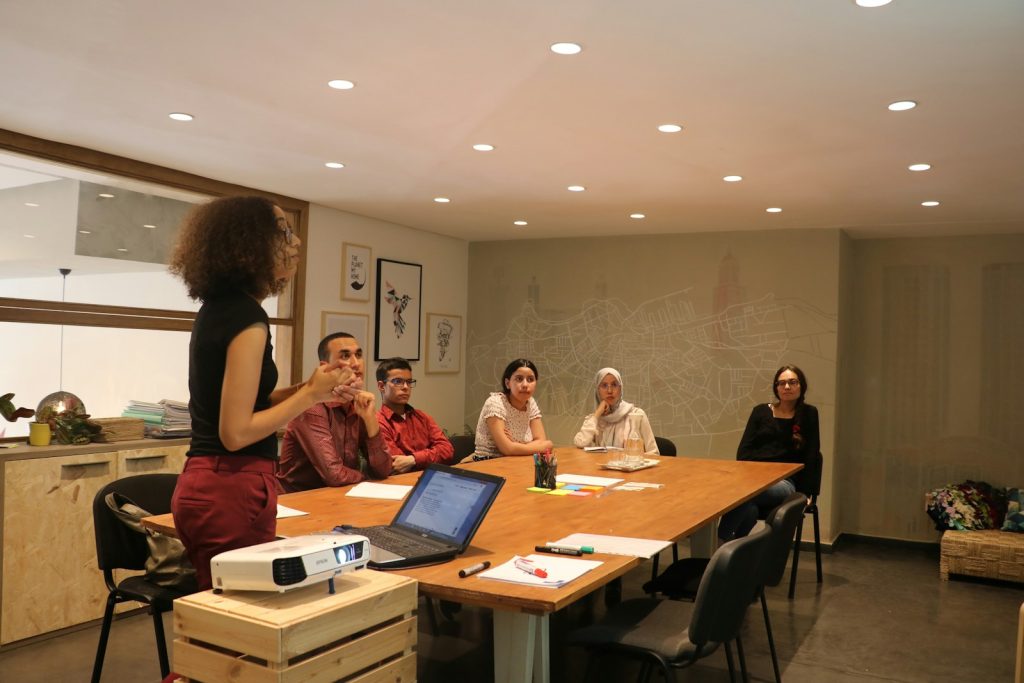Effective outreach is the key to advancing any non-profit organization’s mission. This involves engaging with a diverse audience to garner support and drive change.
The challenge for non-profit organizations lies in reaching as many people as possible, especially those who may speak different languages or come from various cultural backgrounds.
The outreach efforts of non-profits need to be inclusive and accessible to maximize impact.
Why Non-Profits Need Language Translation Services?
Effective communication for your non-profit means not only sharing your mission and activities but also ensuring that your messages resonate with a broad audience.
In an increasingly globalized world, reaching non-English speaking populations and maintaining consistent messaging across languages is critical.
Language translation services provide you with the tools and expertise you need to bridge the language gap.
These services translate content from one language to another, making it accessible to speakers of different languages.
The translation services are not just about converting text.
They also involve adapting your non-profit’s message to suit various cultural contexts and ensure that your communication is both accurate and sensitive.
Benefits of Language Translation Services for Non-Profits
Here are the various benefits of language translation services for non-profits:
Global Reach
With language translation, your non-profit can extend its reach beyond your primary linguistic demographic.
By translating materials into multiple languages, your organization can tap into new markets and engage with communities that were previously inaccessible.
This global reach is essential if your non-profit operates internationally or aims to address global issues. This can help you connect with a more extensive network of supporters and stakeholders.
Engages Diverse Communities
Engaging with diverse communities requires more than just translating words. It also involves understanding and addressing the unique needs and preferences of different cultural groups.
Language translation services facilitate this engagement by making your communications accessible to various linguistic communities.
This inclusivity not only broadens your audience but also fosters a sense of belonging and respect among different groups for your non-profit and its mission.
Improved Donor Relations
Effective donor relations are built on personalized communication.
Language translation services enable your non-profit organization to communicate with donors in their native languages. This helps in enhancing the personal touch and makes the interactions more meaningful.
Personalized messages show that you value and understand your donors’ background, which can strengthen their commitment to your cause.
Builds Trust and Credibility
Trust and credibility are crucial for maintaining strong relationships with donors.
By providing translated materials, you can demonstrate a commitment to inclusivity and respect for diverse cultures.
This effort helps build credibility with international donors and enhances the overall reputation of your organization.
Effective communication in donors’ native languages also reduces the risk of misunderstandings and misinterpretations.
Increases Accessibility
Language barriers can prevent potential supporters from fully engaging with your organization’s mission and activities.
Translation services break down these barriers by making your content accessible to non-English speakers.
This increased accessibility ensures that your messages reach a wider audience, including those who might otherwise be excluded due to language differences.
Inclusive Messaging
Inclusive messaging is essential for fostering a sense of belonging and engagement among diverse audiences.
Translation services help ensure that your content is not only accessible but also culturally relevant.
By adapting your messages to resonate with different cultural groups, you create a more inclusive environment that encourages participation and support from a broad range of individuals.
Better Stakeholder Engagement
Effective communication with local partners is vital for successful collaborations.
Language translation services facilitate clear and effective interactions with local organizations and stakeholders by providing accurate translations of documents, reports, and other communications.
This clarity helps build strong partnerships and ensures that all parties are aligned with project goals and expectations.
Facilitates International Collaborations
International collaborations often involve working with partners from various linguistic and cultural backgrounds.
Translation services play a crucial role in facilitating these collaborations by ensuring that communication is effective and culturally appropriate.
This support helps in overcoming language barriers and fosters productive working relationships across borders.
Attracts International Donors
Translation services can significantly enhance your fundraising efforts by making your campaigns and materials accessible to international donors.
By presenting your fundraising appeals and materials in multiple languages, you increase the chances of attracting support from a global audience.
This can lead to increased donations and a more substantial impact on your organization’s financial goals.
Access to Global Funding Sources
Global funding sources are often available to non-profits working on international or cross-border issues.
Translation services enable you to access these funding opportunities by preparing proposals and applications in the languages required by international donors and funding agencies.
Cultural Sensitivity and Relevance
Cultural sensitivity is crucial for effective communication. Translation services ensure that your messages are adapted to fit the cultural context of different audiences.
Avoids Miscommunications and Offenses
Miscommunications and cultural faux pas can damage relationships and hinder your outreach efforts.
Professional translators with cultural expertise can help avoid these issues by providing translations that are both accurate and culturally appropriate.
Operational Efficiency with Multilingual Communication
Managing multilingual communication can be complex and resource-intensive.
Translation services can streamline this process by providing organized and consistent translations across various languages.
Risks and Challenges of Language Translation Services
Here are some of the risks and challenges you may face when trying to implement or make use of language translation services for your non-profit:
Quality Control Issues
One of the main risks associated with language translation services is the variability in translation quality.
Not all translations are created equal, and differences in quality can impact the effectiveness of your communication.
Potential Misinterpretations
Misinterpretations in translation can lead to misunderstandings and affect the overall message.
This risk is particularly significant when dealing with complex or sensitive topics.
Working with experienced translators who understand the nuances of your content and context can help mitigate the risk of misinterpretations and ensure that your messages are conveyed accurately.
High Costs
For many non-profits, budget constraints are a significant challenge. Translation services can be expensive, and managing these costs requires careful planning and budgeting.
Balancing Quality and Affordability
Achieving a balance between quality and affordability is crucial for every non-profit.
High-quality translations are essential for maintaining credibility and effectiveness, but they can come at a higher cost.
To manage this, you should explore options for cost-effective translation solutions. This may involve negotiating with service providers or exploring technology-assisted translation tools.
Complexity of Multilingual Projects
Managing translation projects involving multiple languages can be complex and challenging.
This complexity can be particularly demanding for non-profits with limited resources.
Managing Translation Workflows
Efficient management of translation workflows is essential for ensuring timely delivery and quality.
Your non-profit must establish clear workflows and processes for handling translations and reviewing completed work.
Risks of Provider Reliability
Relying on external translation service providers introduces risks related to reliability and performance.
It is crucial to select reputable providers with a track record of delivering high-quality translations.
Managing Vendor Relationships
Managing relationships with translation service providers requires ongoing communication and oversight.
Building strong vendor relationships and maintaining open lines of communication contribute to the successful delivery of translation services.
Cultural Nuances and Sensitivities
Understanding cultural contexts is essential for effective communication.
Professional translators with expertise in cultural contexts can help ensure that your messages are appropriate and resonate with different audiences.
Security and Confidentiality Concerns
Handling sensitive information during translation projects requires strict security measures.
Your non-profit organization must ensure that its translation service provider has a robust security protocol in place to protect confidential data.
This protection is crucial for maintaining trust and safeguarding the integrity of your organization’s information.
Data Privacy
Data privacy is a key concern when working with external translation providers.
You need to ensure that your translation partners adhere to data privacy regulations and have measures in place to protect personal and sensitive information.
Integration Challenges
Integrating translated content into existing systems and processes can be challenging. Your organization must ensure that translated materials align with its branding and communication strategies.
This integration may involve adapting content to fit different formats or platforms and ensuring consistency across all language versions.
Training Staff for Multilingual Environments
Effective integration of multilingual content requires training staff to work in a multilingual environment.
You may need to provide training on managing and utilizing translated materials, as well as addressing any challenges that arise from working with multiple languages.
Training helps ensure that staff members are equipped to handle multilingual communication effectively.
Strategies for Effective Use of Translation Services
Here are the various strategies your non-profit organization can employ to make optimum use of translation services:
Choose the Right Translation Service Provider
Selecting the right translation service provider is critical for achieving high-quality results.
Evaluate potential providers based on their expertise, reputation, and experience with non-profit organizations.
Look for providers who have a proven track record of delivering accurate and culturally sensitive translations.
Consider Specialized Non-Profit Services
Some translation service providers specialize in working with non-profits and understand the unique needs and challenges of these organizations.
These providers can offer additional benefits, such as tailored services and expertise in non-profit communications.
Consult with a language translation services company to find a provider that aligns with your specific requirements.
Identify Key Languages and Materials
A well-defined translation strategy is essential for effective communication. Identify the key languages and materials that will have the most significant impact on your outreach efforts.
Prioritize translations based on the needs of your target audience and the goals of your outreach campaigns.
Set Clear Objectives and Expectations
Establish clear objectives and expectations for your translation projects.
Define what you want to achieve with your translations and communicate these goals to your translation service provider.
Setting clear expectations helps ensure that the translations meet your requirements and contribute effectively to your outreach efforts.
Monitor and Review Translations
Quality assurance is crucial for maintaining the accuracy and effectiveness of translations.
Implement processes for reviewing and approving translations to ensure that they meet high standards.
Regularly monitor and assess the quality of translations to address any issues and make improvements as needed.
Gather Feedback from Stakeholders
Gathering feedback from stakeholders, including staff members and target audience representatives, can provide valuable insights into the effectiveness of your translations.
Use this feedback to make adjustments and improve the quality of your translated content.
Engaging stakeholders in the review process helps ensure that your translations resonate with your audience.
Conclusion
Language translation services offer significant benefits for non-profit organizations, including enhanced global reach, improved donor relations, and increased accessibility.
However, challenges such as quality control issues, high costs, and cultural sensitivities must be carefully managed to ensure effective communication.
By addressing the benefits and risks associated with translation services and implementing strategies for effective use, you can achieve your outreach goals and expand your impact.
To navigate the complexities of language translation services and maximize their benefits, consider consulting a language translation services company.
Why Choose AMS Inform?
AMS Inform is a trusted provider of language translation services, known for handling the complexity and importance of this task with precision.
Since its founding in 1986, AMS Inform has accumulated over 38 years of expertise in the background verification industry and language translation.
We offer translation services in a wide variety of languages, including but not limited to:
- Arabic
- English
- French
- Hausa
- Igbo
- Mandarin
- Nepalese
- Persian
- Philippine
- Russian
- Spanish
- Sri Lankan
- Turkish
- Ukrainian
- Urdu
- Vietnamese
- Yoruba
In addition to language services, we also provide various verification solutions, such as identity verification, educational checks, pre- and post-employment verification, Digital ID Verification, as well as credit and health checks. We also conduct drug screenings and insurance claim investigations.
With a global footprint spanning over 160 countries and local teams in 16 of them, AMS Inform is well-equipped to support international operations.
As a member of the NASSCOM and PBSA communities, we are dedicated to upholding the integrity and security of your business operations.
Reach out to our team today for personalized solutions tailored to your language translation requirements.


















